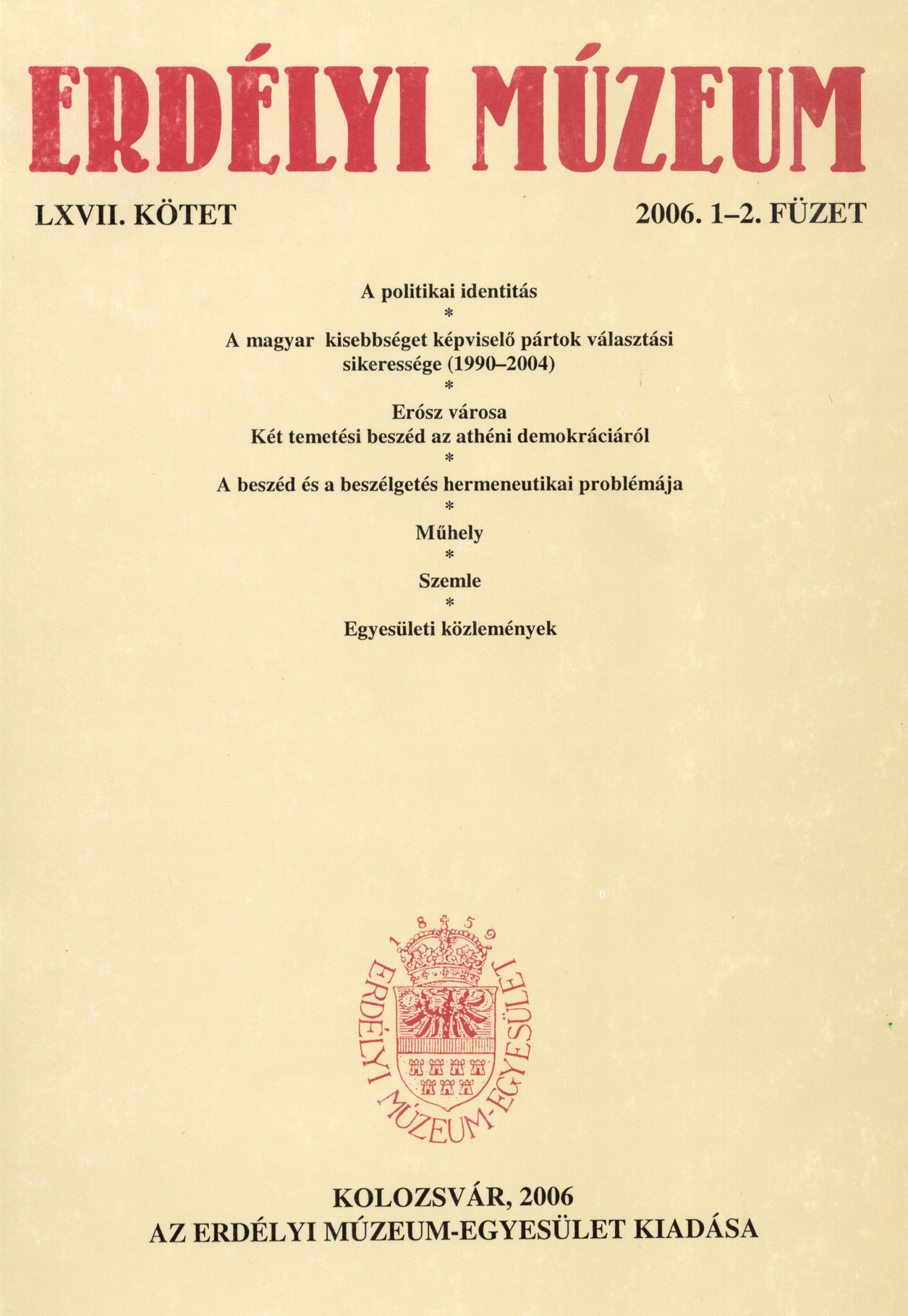A magyar kisebbséget képviselő pártok választási sikeressége (1990–2004)
The Electoral Success of Parties Representing the Hungarian Minority (1990-2004)
Author(s): Alpár Zoltán SzászSubject(s): Political Sciences, Electoral systems, Inter-Ethnic Relations, Politics and Identity
Published by: Erdélyi Múzeum-Egyesület
Keywords: political power; political parties; Hungarian minority; elections;
Summary/Abstract: The main goal of this paper is to examine how the institutional distribution of political power within the party system of a country affects the share of power that can be captured by a minority on national level. (Such an approach relies on the empirical observation that in most parts of the world ethnic/national minorities compete for /political/ resources through the parties that claim to represent them.) To accomplish its task, the paper draws on theories of comparative government and party system theory, while targeting–as sample–post-Communist countries bordering Hungary and featuring Hungarian minorities, i.e., Croatia, Romania, Serbia–Montenegro, Slovakia, Slovenia and Ukraine. Parties representing Hungarian minorities are analysed in order to provide a tentative institutional(ist) explanation of the electoral success of ethnoregionalist parties. The account focuses on systemic variables making up the participation dimension of political systems, more precisely, the nature of the electoral system (used for electing the lower chamber of national legislatures) and party system format. Apart from delineating a theoretical framework that helps to disentangle the relationship between the three variables, the paper offers a (new) definition of ethnoregionalist parties, too, as a means for delimiting their larger―for instance, all-European―universe. Moreover, it presents the theoretical basis of a triple test designed for (dis)proving the ethnoregionalist character of political organisations and performs it on twenty-eight Hungarian political organisations to show that only twenty-one qualify as ethnoregionalist (parties). Finally, the paper concludes that party system fragmentation is indeed a salient factor of ethnoregionalist electoral success. However, the quantitative method employed herein failed to confirm the strong, expected theoretical relationship between electoral system proportionality and the dependent variable. Hence, the paper hints, as directions for future research, to other possibilities for exploring the latter relationship.
Journal: Erdélyi Múzeum
- Issue Year: LXVIII/2006
- Issue No: 1-2
- Page Range: 14-52
- Page Count: 39
- Language: Hungarian

